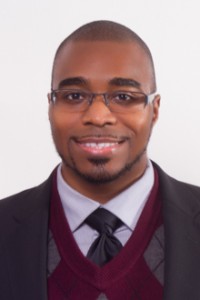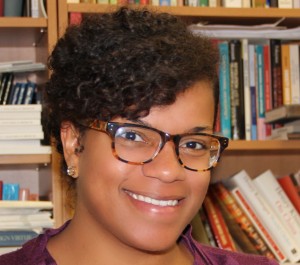Interview with Dr. Rashawn Ray, interview conducted by Brandie Reeder Williams.
Dr. Ray will be giving a lecture on the 25th of October in Hoff Theatre, Stamp Student Union, University of Maryland. To find out more and to RSVP visit the website of the Bahá’í Chair for World Peace.

Q: Dr. Ray we’ve heard a lot in recent public discourse about “driving while Black” and the Stop and Frisk policies that were ruled unconstitutional. What can you tell us about how these policies have disproportionately targeted Blacks? are there difference between women and men?
A: New York City is probably the best example. Stop and Frisk was actually ruled by the New York State Supreme Court as unconstitutional for falsely targeting Blacks and Latinos. A 2011 study of New York City found that police officers made over 700,000 stops (roughly 50% were Black). While only 2% of these stops resulted in the discovery of contraband or a weapon, over 20% of Blacks were subjected to physical force. It is gendered in the sense that men are more likely to be stopped by police. However, Black women are not immune to police brutality and profiling and there are several examples that show this.
Q: In the recent vice presidential debate, “implicit bias” (the bias in judgment and/or behavior that results from subtle cognitive processes that often operate at a level below conscious awareness and without intentional control*) came up as a topic of discussion. What role (if any) does federal, state and local leadership play in acknowledging this issue as it relates to police?
A: Acknowledging implicit bias is important. Vice President candidate Tim Kaine said it best—“People shouldn’t be afraid to bring up issues of bias in law enforcement. And if you are afraid to have the discussion, you will never solve it.” Moreover, it is not just enough to discuss implicit bias. We need real policy changes to remove policies (such as Stop and Frisk, Stand Your Ground, and quote-driven policing) that allow for the criminalization of citizens to occur and implicit bias to persist.
Q: What scholarly research can you point to that reveals racial bias in police departments and what steps have successful departments taken to remedy it?
A: I wrote an article with Dr. Keon Gilbert published in the Journal of Urban Health entitled, “Why Police Kill Black Males with Impunity: Applying Public Health Critical Race Praxis (PHCRP) to Address the Determinants of Policing Behaviors and Justifiable Homicides in the USA.” In this paper, we provide the most recent evidence on bias in policing, discuss why it occurs, and layout 10 steps to remedy this social epidemic and public health problem.
Q: When talking about police compliance, many Blacks point to examples where “respectability politics” did not lead to favorable outcomes for victims of police brutality. What role does a discussion of respectability politics have in your discussion of this topic?
A: A person should not have to be respectable to not be killed by the cops. Blacks always have to be above reproach, and victims of police violence often go on trial for their own murders. What we need is for all individuals, regardless of skin color and social class background, to not face brutality due to perceptions of crime and be treated with human dignity and respect.
Q: We’ve all seen the statistics that show that the U.S imprisons a larger share of its minorities than do any other industrialized country in the world. What are the main obstacles we face in reforming our criminal justice system?
A: The criminal justice system needs a restructuring. We must detach from private prisons that are invested in locking people up and keeping them there. Something that always shocks people is the fact that stock can be purchased through the stock market exchange for companies that make revenue from private prisons, and there is furniture (like at universities such as ours) that was made by prisoners. Our criminal justice system is now so intertwined with capitalism that everyone is invested in locking people up. In order to lock people up, you must stop them. It doesn’t matter how many people you stop, it just matters that you finally get someone doing something bad. We should care more about the ones stopped for reasons embedded in racism. This is my focus.
Q: What role do you believe the media play in our perceptions of Blacks in society, especially as it relates to criminal justice and police-community relations?
A: The media play a large role. While violent crime has significantly decreased since the 1990s, many people believe that crime is worse than ever before. This is partly because local and cable news is all about “low lighting” the most gruesome crimes rather than highlighting the positive things occurring in society. This becomes racialized because Blacks are more likely to be shown on TV as criminals. Even when Whites are accused of crimes, a work or school photo may be shown rather than a mug shot. It is irresponsible for the media to continue this pattern.
A group of Black professionals came together to reclaim the narrative about Blacks. They created a portal called #DocYourChange. People can use the hashtag #DocYourChange when they engage in or see positive activities in local communities as well as post these images or videos at DocYourChange.com.
Q: Last question Dr. Ray. Your talk title is quite attention grabbing and points to a salient issue that has been brought up again and again in light of the recent police shootings of African Americans. What particular event, experience or research topic got you interested in this particular component of sociological work?
A: Unfortunately, there are many. First, personally I have been stopped over 30 times by the police in the various places I have lived across the country. I shouldn’t have to say this, but I do not have a criminal record and I have a PhD. Second, my research mimics this by showing that a middle class status does not protect Blacks and Latinos from racial profiling or police brutality. Third, the murder of Philando Castile did something to me. Hearing the four-year-old daughter of Diamond Reynolds (Castile’s girlfriend) try to console her mother while her mother prayed to God to save Philando’s life was unbearable.
As the father of 4 and 6 year old Black boys, I came to the realization that I wasn’t doing enough to ensure that they would be treated the same as their White friends. I knew that I had to do more. In addition to my collaboration with Dr. Kris Marsh and research with the Prince George’s County Police Department, I started a biweekly Vlog called #DailyThought where I provide commentary and research on recent events centered on race, class, and gender inequality. People can follow me on Facebook, Twitter, or Instagram at @SociologistRay to see more.
 Dr. Rashawn Ray is an Associate Professor of Sociology at the University of Maryland, College Park. Ray’s research addresses the mechanisms that manufacture and maintain racial and social inequality. His work also speaks to ways that inequality may be attenuated through racial uplift activism and social policy.
Dr. Rashawn Ray is an Associate Professor of Sociology at the University of Maryland, College Park. Ray’s research addresses the mechanisms that manufacture and maintain racial and social inequality. His work also speaks to ways that inequality may be attenuated through racial uplift activism and social policy.
 Brandie Reeder Williams is staffer, researcher, and blogger for the Bahá’í Chair for World Peace. She holds a Master’s of Public Administration from UNC Greensboro, and works to champion issues related to social justice, women’s rights and community development.
Brandie Reeder Williams is staffer, researcher, and blogger for the Bahá’í Chair for World Peace. She holds a Master’s of Public Administration from UNC Greensboro, and works to champion issues related to social justice, women’s rights and community development.
Interested? Come to the open lecture by Dr. Rashawn Ray on October 25th, 2016, organised by the Bahá’í Chair for World Peace and The Critical Race Initiative. More information, RSVP Here.
*Source: Definition of Implicit Bias, National Center for State Courts, www. NCSC.org
